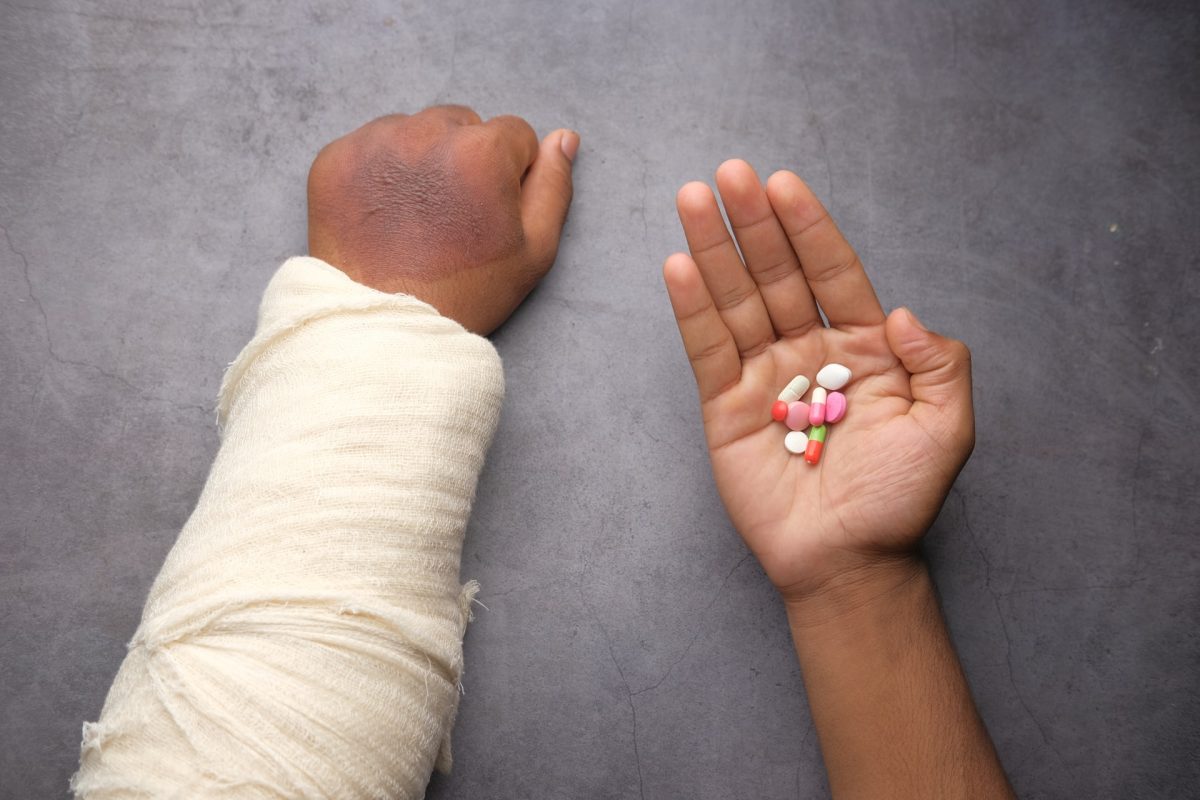Human beings try to avoid pain – it’s ingrained in us as a survival instinct. Nobody wishes pain upon themselves, but unfortunately, life happens and there are times when it becomes unavoidable. If you regularly play sports, sprain injuries, ankle fractures, or broken bones might be all too familiar to you. They also may not necessarily be sports-related: think of falls, road accidents, fights, and mass disasters.
Being injured is an unpleasant experience and comes with its own set of inconveniences. Apart from physical disability, injuries can also cause anxiety, stress, and a sense of hopelessness about recovery. While the length of recovery depends on the type and whether there are single or multiple injuries, there are other factors like your lifestyle choices, nutrition, and sleeping habits that can help in a faster recovery.
1. Seek Immediate Medical Help
This cannot be stressed enough: after any accident, injury or trauma, seek immediate medical advice. This is especially true for high-collision accidents, where injuries might not be evident at the time of the accident but if not diagnosed early can lead to complications later on. Book a thorough medical evaluation even if you feel fine. It’s better to be safe than sorry.
Doctors have tools at their disposal such as diagnostic scans that can pick up any internal injuries and treat them before they become problematic.
Even if you have a minor sports injury, it’s better to bring this to your health professional so that they can provide you with a personalized treatment plan. Active movement can aggravate your injury, so they might recommend that you get to rest for a few days. Follow their advice and keep a record of all your appointments.
2. Consider Legal Advice
You might have a number of things going through your mind after an accident, but seeking legal advice is something you should immediately consider. Depending on the injury and the circumstances under which it occurred, you might be able to claim financial compensation. Especially in cases of disability, you might not be able to work, and having to worry about your finances is additional stress which could hinder your recovery. According to the Californian car accident injury law, for instance, you can claim for a settlement averaging around $30,000 after a car accident. However, you need a competent legal advisor who can help you better obtain financial compensation.
3. Maintain Good Nutrition
After an injury, your body needs proper nutrients to repair and heal itself. You can help your body by adhering to a balanced diet, and providing it with the food groups it needs. For example, proteins form most of your muscles and body structure, so having a diet rich in protein will promote faster recovery. Fruits and vegetables can help fight inflammation and shorten the time it takes for you to recover. Calcium is another mineral that your bones need, so having a diet rich in calcium and vitamin D will help repair broken bones. Vitamin D is also excellent in pain management, so you can always use supplements if the supply from your diet is inadequate.
4. Get Adequate Sleep
After an accident, your body is in a vulnerable state, and you need to slow down to allow your body to recover. You’ll need more sleep after an injury, as it’s your body’s way of preserving your energy levels. During sleep, there is an increase in blood flow to muscles and tissues that can help repair them faster.
Cortisol, your body’s stress hormone, is released after an injury, which can negatively impact recovery. By getting adequate sleep, you can lower your stress levels and ensure a faster recovery.
5. Speak to a Mental Health Expert
Accidents and injuries are incredibly overwhelming experiences, and without the right tools to deal with emotional turmoil, recovery can become difficult. Clinical depression is one of the most common symptoms after an accident and can hamper a person’s ability to cope with the challenges of life. Some people also develop post-traumatic stress disorder (PTSD) that can seriously affect their daily functioning.
Emotional and psychological recovery is as important as physical recovery, so don’t forget to seek professional help. After all, a healthy mind is essential for a healthy body.
6. Physical Rehabilitation
Seeking physical rehabilitation is essential after any major injury. Physical therapists are trained to provide specially guided exercises that can help you regain your physical strength, and they have special equipment that can help you through your recovery. Depending on the degree of your injury, you might be referred to a rehabilitation center where you will be provided with advanced treatment options, including prosthetic limbs in the case of amputations.
The aftermath of an injury can be incredibly stressful, but with the right mindset and approach, recovery is possible. If you or your loved one has been through a major injury, seek professional help to maximize the chances of recovery. Don’t overburden yourself and take it slow. While recovery might seem impossible, with these tips, you can speed up the process and get back to your life.
